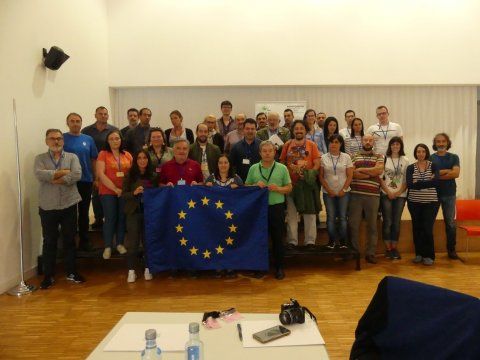About 35 representatives of the Galician agroforestry sector, including farmers, researchers, producers associations and representatives of the regional Government, Xunta de Galicia, met on September 21st in Guntín (Lugo) for the third meeting of the AFINET RAIN, where they discussed and shared technical, economic or political innovations which promote agroforestry management in Galician forests and soils.
The Mayor of Guntín, Jesús Carreira, welcomed the Galician Agroforestry Innovation Network to the working session, which will promote a good management of Galician forests. The session was focused on the aspects that most concern the members of the network such as combinations of species in agroforestry systems, technical management issues and aspects related to political regulation and social awareness.
The members of the network agreed that the current regulatory framework adversely affects the agroforestry management of the forest and requested recommendations and good practices that favor the implementation and consolidation of these systems.
Rosa Mosquera, coordinator of the project and director of the Department of Plant Production of the University of Santiago de Compostela, together with Juan Luis Fernández Lorenzo, professor in this same department, presented a guide for the plantation of arboreal species in agroforestry systems, which is being elaborated under the framework of the project.
Other innovation that generated interest among the RAIN memebers was the design of a predictive model of economic and environmental production of agroforestry exploitations, which helps farmers and forest owners to decide the viability and profitability of including this type of practices in their exploitations.
After the discussion session and presentations, RAIN members visited the Cabuxa Natur goat farm in Guntín, which makes use of shrub grass and shrub grass under trees; and Monte Veciñal in Man Común de Carballo, in Friol, where they were able to observe one of the outstanding innovations for silvopastoral management: a mobile system to improve the management of pigs in extensive agroforestry systems.












